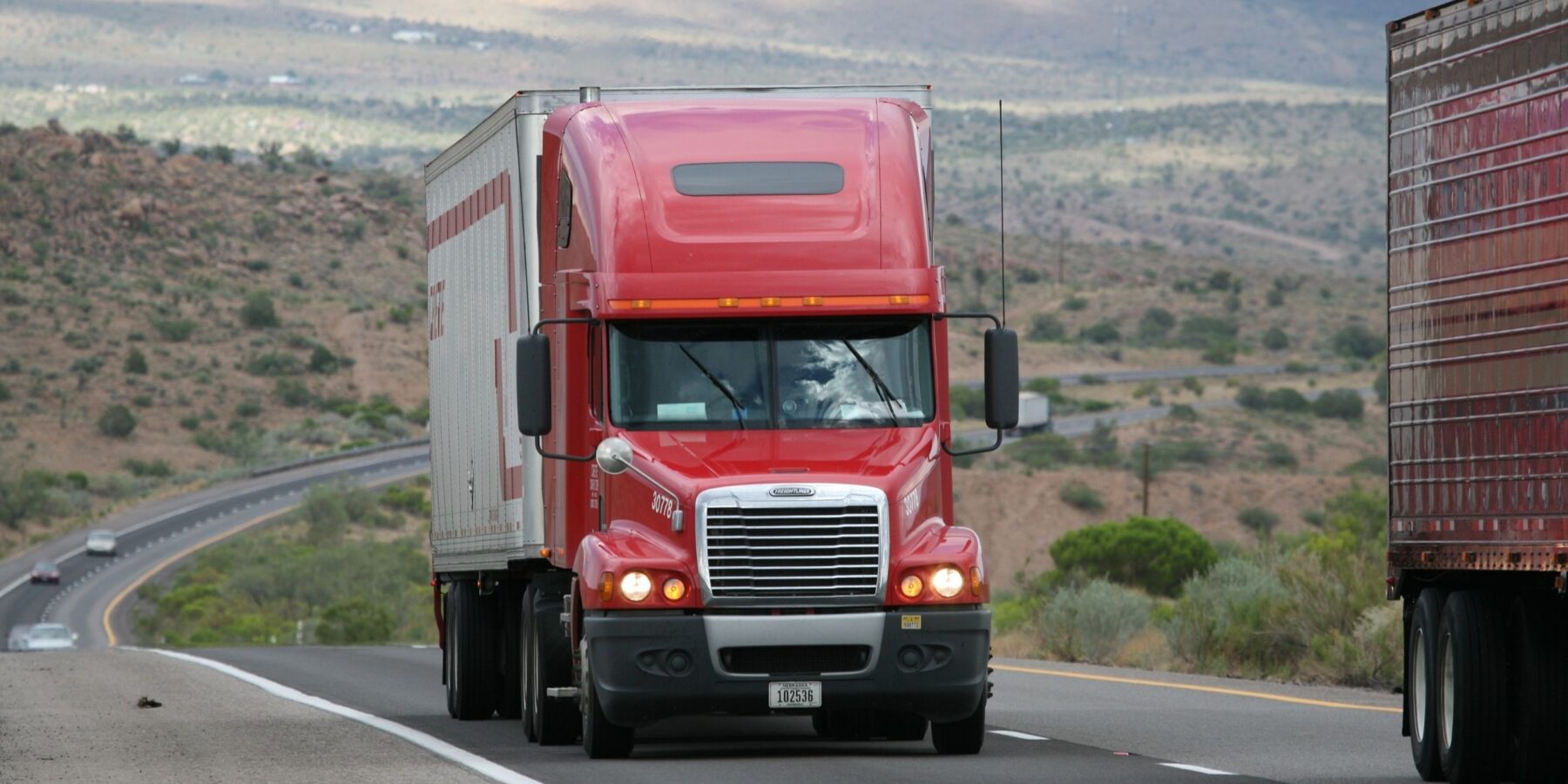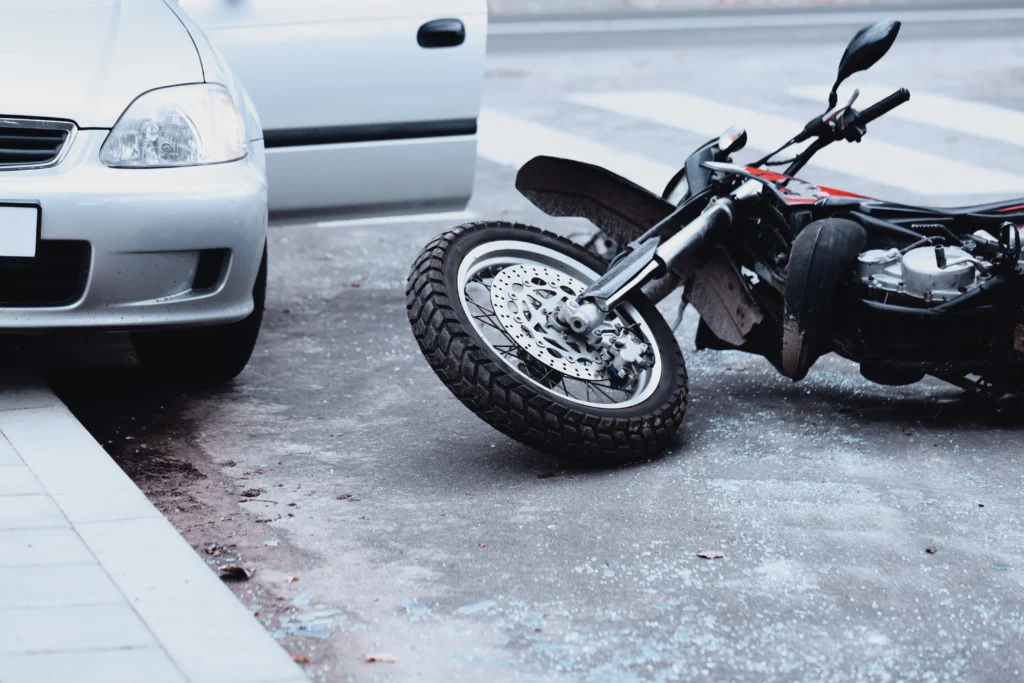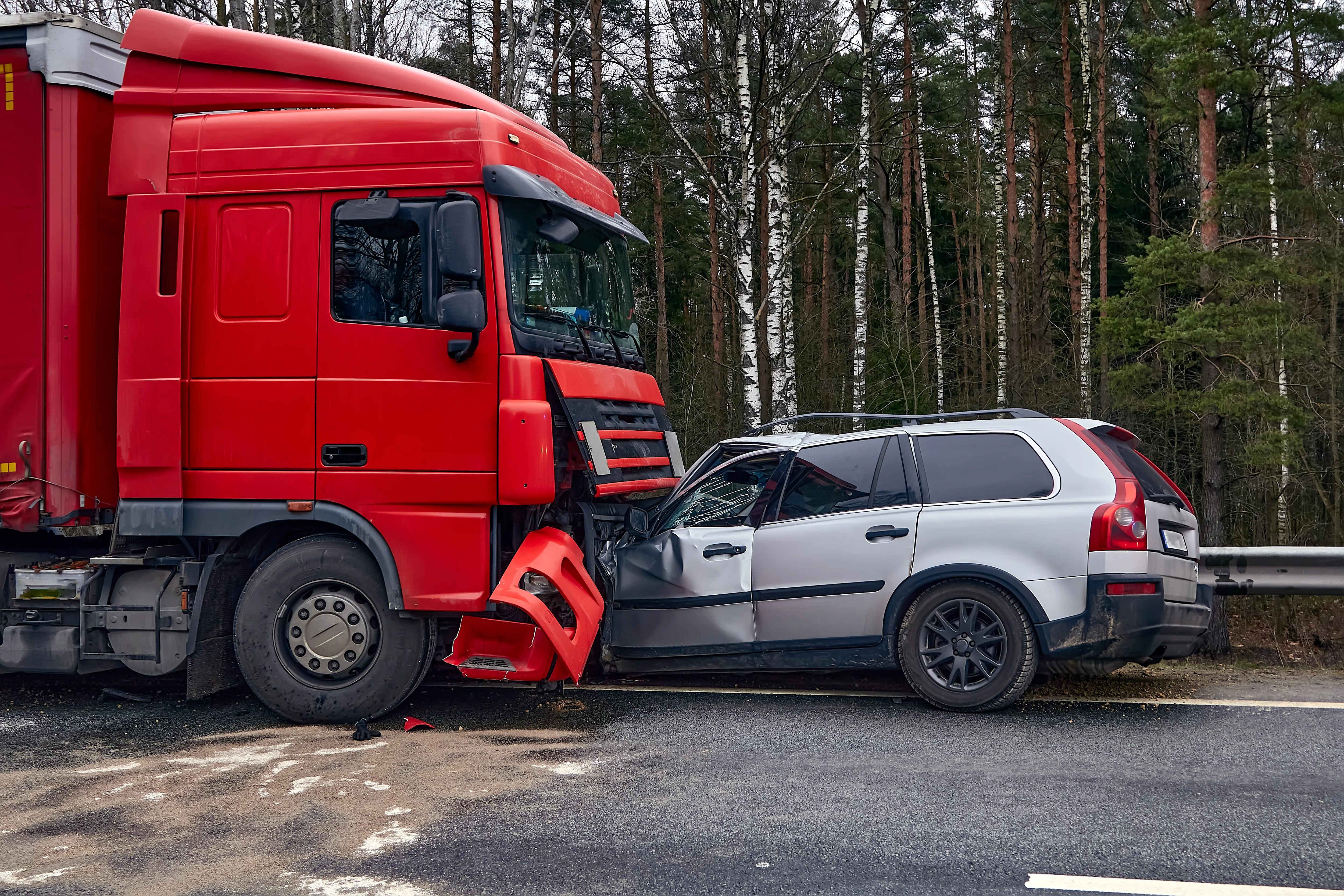Tacoma’s Relentless Legal Advocates for Truck Accident Injury Victims
Truck accidents in Tacoma often lead to catastrophic injuries, overwhelming medical costs, and long-term emotional trauma. With commercial trucks traveling daily along major roadways like I-5, State Route 16, and Pacific Avenue, Tacoma residents face a constant risk of devastating collisions. Whether it’s a jackknife crash near the Port of Tacoma or a rear-end accident on South 38th Street, the consequences are often life-altering.
These crashes are not just more severe than ordinary car accidents; they are also more complex. Truck accidents involve multiple parties, including drivers, freight companies, maintenance providers, and insurers. Determining liability requires an immediate investigation and legal expertise that understands both Washington traffic law and federal trucking regulations. Victims must also contend with trucking companies that aggressively defend their interests and insurance carriers that minimize payouts.
At Bernard Law Group, we fight for people hurt in Tacoma truck crashes. Our attorneys have decades of experience handling high-stakes injury cases throughout Pierce County. We know how to uncover safety violations, prove negligence, and demand the full compensation you deserve. If you or a loved one were injured in a Tacoma truck crash, don’t face the legal system alone. Call us at (206) 312-3908 or visit our contact page for a free consultation.
Common Causes of Truck Accidents in Tacoma
Truck accidents in Tacoma are rarely caused by chance. In most cases, they are the direct result of preventable human error, regulatory violations, or poor road conditions. Given the high volume of freight traffic moving through the Port of Tacoma and the surrounding highways, truck crashes have become an unfortunate reality in the city’s daily life. To understand how these accidents happen, it’s essential to explore the most frequent causes and the systemic issues behind them.
Driver Fatigue and Hours-of-Service Violations
Fatigue is one of the most dangerous conditions a truck driver can experience behind the wheel. Commercial drivers are required to follow strict Hours-of-Service (HOS) regulations as outlined by the Federal Motor Carrier Safety Administration (FMCSA). These rules limit how many hours a trucker can drive before taking a mandatory rest break.
Unfortunately, pressure to meet delivery deadlines often results in drivers violating these rules. In Tacoma, drivers transporting goods along I-5 and SR-509 frequently exceed their legal driving hours. Fatigue reduces reaction time, impairs judgment, and increases the likelihood of missing hazards in traffic. According to the National Sleep Foundation, sleep-deprived drivers are just as dangerous as those under the influence of alcohol.
Speeding and Reckless Operation of Heavy Vehicles
Speeding continues to be a major contributing factor in Tacoma truck crashes. Large commercial vehicles require far more distance to stop than passenger cars. When truck drivers exceed the speed limit on roadways like South 38th Street or Pacific Avenue, they place everyone around them in danger.
The National Highway Traffic Safety Administration (NHTSA) has documented how speeding significantly increases the risk of crash severity, especially in collisions involving large trucks. In Tacoma, many truck crashes involve drivers operating aggressively through congested urban corridors, making it difficult for other motorists to anticipate their movements.
The Physics Behind Truck Stopping Distances
A fully loaded 18-wheeler can weigh up to 80,000 pounds. At 60 miles per hour, it can take the length of two football fields to come to a complete stop. The Insurance Institute for Highway Safety (IIHS) reports that truck stopping distances are a major factor in rear-end collisions, especially when weather or traffic conditions are not ideal. When truck drivers fail to reduce speed in construction zones or high-traffic areas, the consequences can be fatal.
Distracted Driving Among Commercial Operators
Despite widespread public awareness, distracted driving remains a leading cause of truck accidents in Tacoma. Commercial truck drivers use mobile devices for navigation, dispatch communication, and route updates. Even a brief glance at a screen can lead to disaster.
The Centers for Disease Control and Prevention (CDC) reports that sending or reading a text takes a driver’s eyes off the road for about five seconds. At highway speeds, that’s enough time to travel the length of a football field. In Tacoma, truck crashes often occur due to distraction, particularly along I-705, South Tacoma Way, and near major shipping hubs where multitasking is common.
Legal Restrictions on Device Use
The FMCSA bans all handheld mobile phone use by commercial drivers operating in interstate commerce. Violations can result in fines, license suspensions, and disqualification from driving. Still, enforcement is difficult, and many trucking companies do not actively monitor compliance. You can learn more about the FMCSA’s distracted driving rules here.
Improper Cargo Loading and Unbalanced Freight
Improperly loaded cargo can destabilize a truck’s center of gravity, leading to rollover crashes, jackknife accidents, or spilled freight on Tacoma roadways. The FMCSA’s Cargo Securement Rules lay out detailed requirements for how freight should be balanced and secured, yet violations are common.
In Tacoma, freight often passes through marine terminals and distribution centers near the Port. If warehouse staff fail to distribute weight evenly or use proper restraints, the truck becomes more difficult to control, especially on curves or during abrupt braking.
When Third Parties Share Liability
In many Tacoma truck crash investigations, the party responsible for loading the truck is not the driver but a third-party contractor or shipping company. These entities may be liable if poor loading practices contributed to the crash. Understanding how cargo was loaded and by whom often requires reviewing shipping manifests, warehouse logs, and surveillance footage. This complexity makes it critical to consult legal counsel experienced in commercial freight litigation.
Equipment Failure and Inadequate Maintenance
Commercial trucks endure extreme wear and tear, and their safety depends on regular maintenance. Brake systems, tires, lights, and steering components must be inspected frequently. However, some carriers cut corners to save costs. When maintenance is neglected, trucks operating in Tacoma become ticking time bombs.
The Commercial Vehicle Safety Alliance (CVSA) conducts annual inspections across the U.S. and routinely reports high rates of violations. Brake violations remain the most common reason trucks are taken out of service. In Tacoma, breakdown-related crashes are especially common on steep roadways like South 56th Street or when trucks descend ramps into industrial zones.
Poor Weather and Road Conditions in Tacoma
Tacoma’s rainy climate creates slippery roads that compound the risks of heavy truck traffic. Water accumulation along poorly drained highways like I-705 and East 11th Street increases the risk of hydroplaning and rollovers. When maintenance crews fail to repair potholes, clean drainage grates, or clear debris from truck routes, crashes become more likely.
The Federal Highway Administration (FHWA) confirms that nearly 21 percent of vehicle crashes in the U.S. are weather-related, with wet pavement being the most common contributing factor. Truckers must adjust their speed and braking behavior accordingly, yet many fail to do so.
Government Liability for Dangerous Roadways
When a Tacoma truck crash is caused in part by poor road maintenance, a local or state agency may share liability for the incident. Washington municipalities can be held accountable under certain conditions, but these claims involve strict notice rules and filing deadlines. The Washington State Department of Transportation provides additional resources on infrastructure maintenance and complaint procedures.
Injuries Caused by Tacoma Truck Accidents
Truck accidents in Tacoma almost always result in serious, life-altering injuries. The sheer size and weight of commercial trucks mean that even low-speed collisions can cause devastating trauma. Victims struck by semi-trucks, 18-wheelers, dump trucks, or other commercial vehicles face long hospital stays, multiple surgeries, and years of rehabilitation. In the worst cases, these accidents lead to permanent disability or wrongful death.
Because of the medical complexity and financial stakes involved, understanding the full scope of injuries is critical. This section outlines the most common types of injuries caused by Tacoma truck crashes, how they impact victims, and where families can turn for treatment and support.
Traumatic Brain Injuries From High-Impact Collisions
A traumatic brain injury (TBI) is one of the most severe outcomes of a truck crash. When a car is struck by a truck, the occupant’s head may slam against a window, steering wheel, or headrest. Even if the skull remains intact, the brain can suffer internal bruising, swelling, or bleeding due to sudden acceleration and deceleration.
According to the Centers for Disease Control and Prevention (CDC), TBIs can result in long-term cognitive deficits, memory loss, mood disorders, and physical impairments. In Tacoma, many truck accident victims with TBIs are treated at facilities like MultiCare Tacoma General Hospital or St. Joseph Medical Center.
Post-Concussion Syndrome and Delayed Symptoms
Even so-called “mild” brain injuries can have lasting effects. Symptoms may not appear until hours or days after the crash. Victims often experience headaches, blurred vision, dizziness, or irritability. The Mayo Clinic warns that post-concussion syndrome can interfere with work, relationships, and daily functioning for months or even years.
Spinal Cord Injuries and Paralysis
Spinal trauma is another common result of Tacoma truck collisions. A sudden jolt can fracture vertebrae, compress discs, or sever the spinal cord entirely. These injuries may lead to partial or complete paralysis depending on where the damage occurs.
The Christopher & Dana Reeve Foundation explains that victims with spinal cord injuries often require ventilators, wheelchairs, and 24-hour care. Recovery is often incomplete, and the financial burden can exceed $1 million in the first year alone. Tacoma residents with these injuries frequently receive treatment at Harborview Medical Center, the region’s Level 1 trauma center.
Disc Herniations and Nerve Compression
Not all spinal injuries involve paralysis. Many victims suffer from herniated discs or pinched nerves, which can cause chronic back pain, numbness, and limited mobility. The American Association of Neurological Surgeons (AANS) outlines treatment options, including physical therapy, steroid injections, and in some cases, spinal fusion surgery.
Multiple Fractures and Orthopedic Injuries
The force of a truck crash frequently results in multiple broken bones. Victims may suffer compound fractures, crushed limbs, or joint dislocations that require metal plates, screws, or pins to stabilize.
According to the American Academy of Orthopaedic Surgeons (AAOS), bone fractures can take months to heal, and many require ongoing physical therapy. In Tacoma, orthopedic trauma care is often provided by specialists affiliated with Virginia Mason Franciscan Health.
Common Fracture Sites in Truck Accidents
In truck-related collisions, fractures often occur in the pelvis, femur, ribs, collarbone, and arms. These bones absorb the impact when a passenger braces for a crash or is thrown against the interior of the vehicle. Compound fractures can lead to infection, nerve damage, and long-term mobility issues.
Internal Bleeding and Organ Damage
Not all injuries are visible. Internal trauma is common in high-speed Tacoma truck crashes, particularly when seatbelts or airbag deployment compress the torso. Victims may suffer ruptured spleens, lacerated livers, punctured lungs, or internal bleeding.
The National Library of Medicine warns that these injuries are often not diagnosed immediately and may be fatal without prompt intervention. Abdominal swelling, low blood pressure, and fainting are all red flags that require emergency care.
Why Immediate Imaging Is Critical
CT scans and ultrasounds are essential tools in diagnosing internal injuries. Victims involved in truck crashes should undergo full trauma evaluations even if symptoms seem minor. In Pierce County, most trauma cases are routed through Level II or Level III trauma centers within the Washington State Trauma System.
Psychological and Emotional Trauma After a Crash
Truck accidents don’t just harm the body; they also leave deep emotional scars. Many victims develop post-traumatic stress disorder (PTSD), anxiety, and depression following a violent collision.
The American Psychological Association (APA) confirms that psychological trauma is common after serious accidents and may persist long after physical injuries have healed. Counseling, support groups, and therapy can be crucial in helping victims and their families recover.
Who Can Be Held Liable After a Tacoma Truck Accident
Determining liability after a Tacoma truck accident is rarely straightforward. Unlike typical car crashes, truck collisions often involve multiple parties, overlapping responsibilities, and complex regulatory frameworks. Victims must identify not only who was at fault, but also which companies, insurers, or agencies can be held financially accountable. In many cases, more than one party may be legally liable for your injuries, making skilled legal guidance essential.
At Bernard Law Group, we conduct thorough investigations into every crash. We gather driver logs, black box data, maintenance records, and eyewitness statements to identify all responsible entities. Understanding how liability works under Washington law can make the difference between a denied claim and a successful, full-value settlement.
The Truck Driver May Be Liable for Negligent Driving
The most obvious potential defendant in a Tacoma truck accident case is the truck driver. If the driver was speeding, distracted, fatigued, or operating the vehicle recklessly, they may be held personally liable for any resulting injuries.
Washington law requires all drivers, including commercial operators, to exercise reasonable care on the road. Under RCW § 46.61.400, drivers must adjust speed to avoid accidents, especially in bad weather, around curves, or near intersections. Failing to do so constitutes negligence. The Washington State Department of Licensing outlines the special licensing requirements for commercial drivers, reinforcing their legal duty to operate safely.
Trucking Companies Are Often Liable for Driver Behavior
In many cases, the trucking company that employed the driver can also be held responsible. This is based on the legal doctrine of respondeat superior, which holds employers accountable for the negligent actions of their employees when performed during the course of employment.
However, liability does not end with employment. Trucking companies can also be independently negligent if they:
- Failed to properly screen or train their drivers
- Encouraged drivers to violate federal Hours-of-Service limits
- Ignored safety complaints
- Skipped mandatory vehicle maintenance
The Federal Motor Carrier Safety Administration (FMCSA) publishes safety regulations that all trucking companies must follow, including rules on driver hours, vehicle inspections, and recordkeeping. If a Tacoma-based carrier violates these standards, they may face civil liability and federal penalties.
Proving Company Negligence With Safety Scores
The FMCSA’s Safety Measurement System allows you to view public safety scores for motor carriers. If the company involved in your crash has a history of violations, this information can support your claim. A pattern of speeding citations, failed inspections, or logbook discrepancies can be powerful evidence of corporate negligence.
Cargo Loaders and Freight Handlers May Share Liability
Improper cargo loading is a common and often overlooked factor in Tacoma truck accidents. If a third-party freight handler overloaded the truck or failed to secure the cargo, they may share responsibility for a crash caused by shifting or falling freight.
The FMCSA’s Cargo Securement Rules require specific tie-downs, balance procedures, and weight limits to prevent load-related accidents. Many freight companies subcontract loading duties to warehouse personnel or logistics firms, which can open up additional avenues for legal recovery.
Maintenance Contractors May Be Responsible for Equipment Failure
Trucking companies often outsource their vehicle inspections and repairs. When a Tacoma crash is caused by brake failure, tire blowouts, or steering malfunctions, the maintenance contractor may be liable if their work was negligent.
The Commercial Vehicle Safety Alliance (CVSA) frequently reports that brake system violations are the top reason trucks are placed out of service. If your accident was caused by a mechanical failure, your legal team will need to examine maintenance logs, repair records, and inspection reports to identify any negligence.
Government Entities May Be Liable for Dangerous Road Conditions
In some Tacoma truck crashes, liability may extend to the City of Tacoma, Pierce County, or the Washington State Department of Transportation. If the accident was caused by poor road design, inadequate signage, faulty traffic signals, or failing to address known hazards like potholes or icy conditions, a government agency may share fault.
Under RCW § 4.92.100, individuals may file claims against the state for injuries caused by negligence. However, strict notice rules and filing deadlines apply. Claims must be submitted within a short time frame using the proper tort claim forms provided by the Washington State Department of Enterprise Services.
Legal Challenges in Suing the Government
Government liability cases are more complicated than private claims. Sovereign immunity and administrative procedures create barriers that require experienced legal representation. Evidence such as prior citizen complaints, city maintenance logs, and accident history at the crash site can play a pivotal role in proving government fault.
Manufacturers May Be Liable for Defective Parts
If the truck crash was caused by a manufacturing defect such as faulty brakes, a tire blowout, or a malfunctioning steering system, the manufacturer may be liable under Washington’s product liability laws. These cases are governed by RCW § 7.72, which covers claims involving unsafe products.
The Consumer Product Safety Commission (CPSC) and National Highway Traffic Safety Administration (NHTSA) both maintain databases of product recalls. If the truck or one of its parts was recalled and not repaired, this may support your legal claim.
Talk to a Tacoma Truck Accident Lawyer Today
If you or someone you love was hurt in a truck accident in Tacoma, you don’t have to face the aftermath alone. The medical bills, lost wages, and emotional stress can be overwhelming, but help is just a phone call away. At Bernard Law Group, we’ve recovered millions for truck accident victims across Washington. Our legal team knows how to investigate these complex cases, hold negligent parties accountable, and fight for every dollar you deserve.
Truck crashes often involve powerful corporate insurers, aggressive defense teams, and confusing regulations. Without experienced representation, you may walk away with far less than your case is worth. Don’t settle for less. Let us protect your rights and pursue the full compensation you’re owed under Washington law.
Call Bernard Law Group today at (206) 312-3908 or fill out the form on our contact page to schedule a free consultation. You pay nothing unless we win your case.
Practice Areas
Trust Us With Your Personal Injury Claim
If you or a loved one have been injured, Bernard Law Group will fight for you every step of the way. We will give our all to secure the compensation you rightfully deserve.
Contact usfor a free consultation.
Phone: (206) 312-3908









